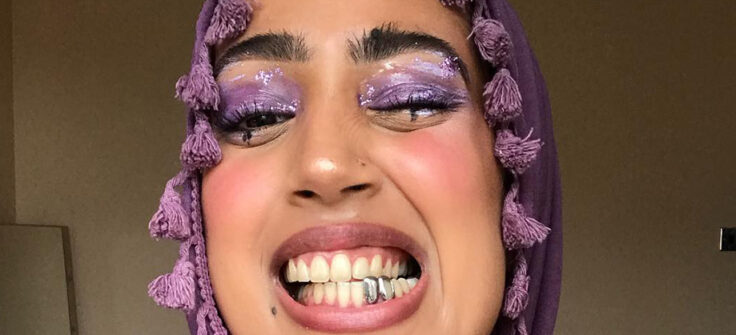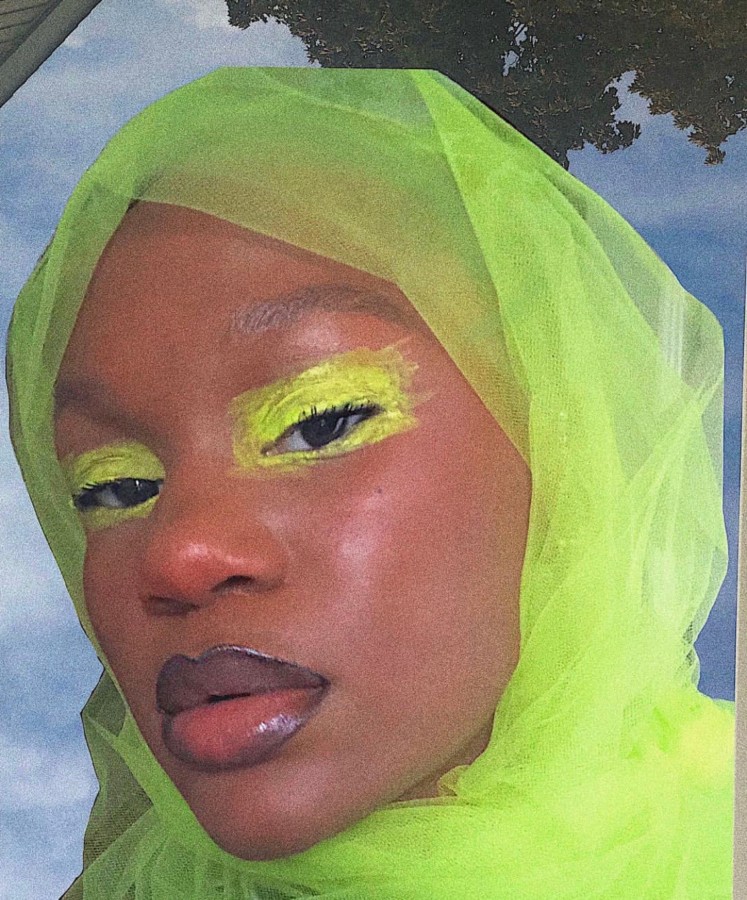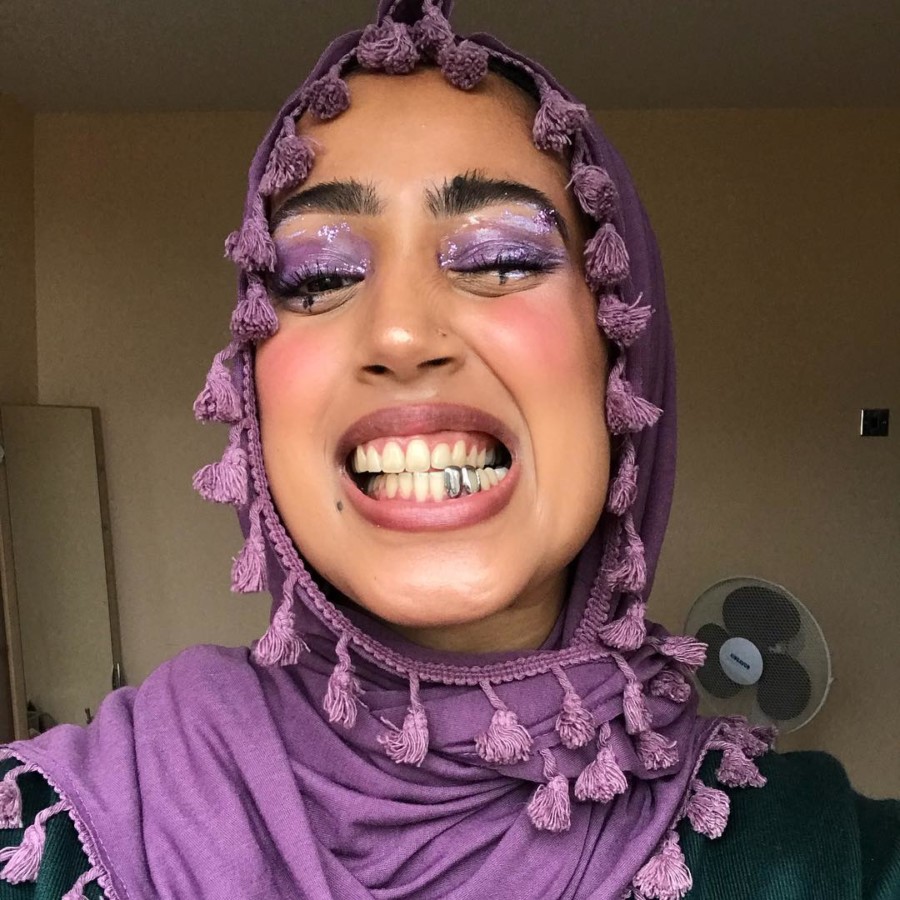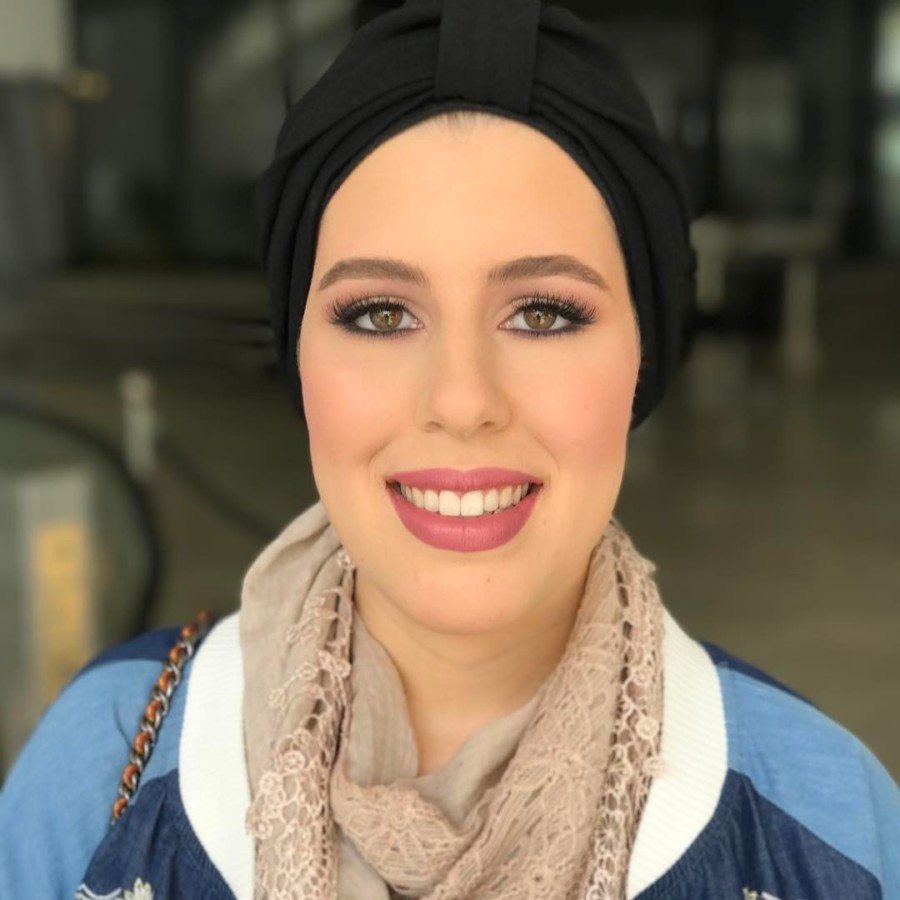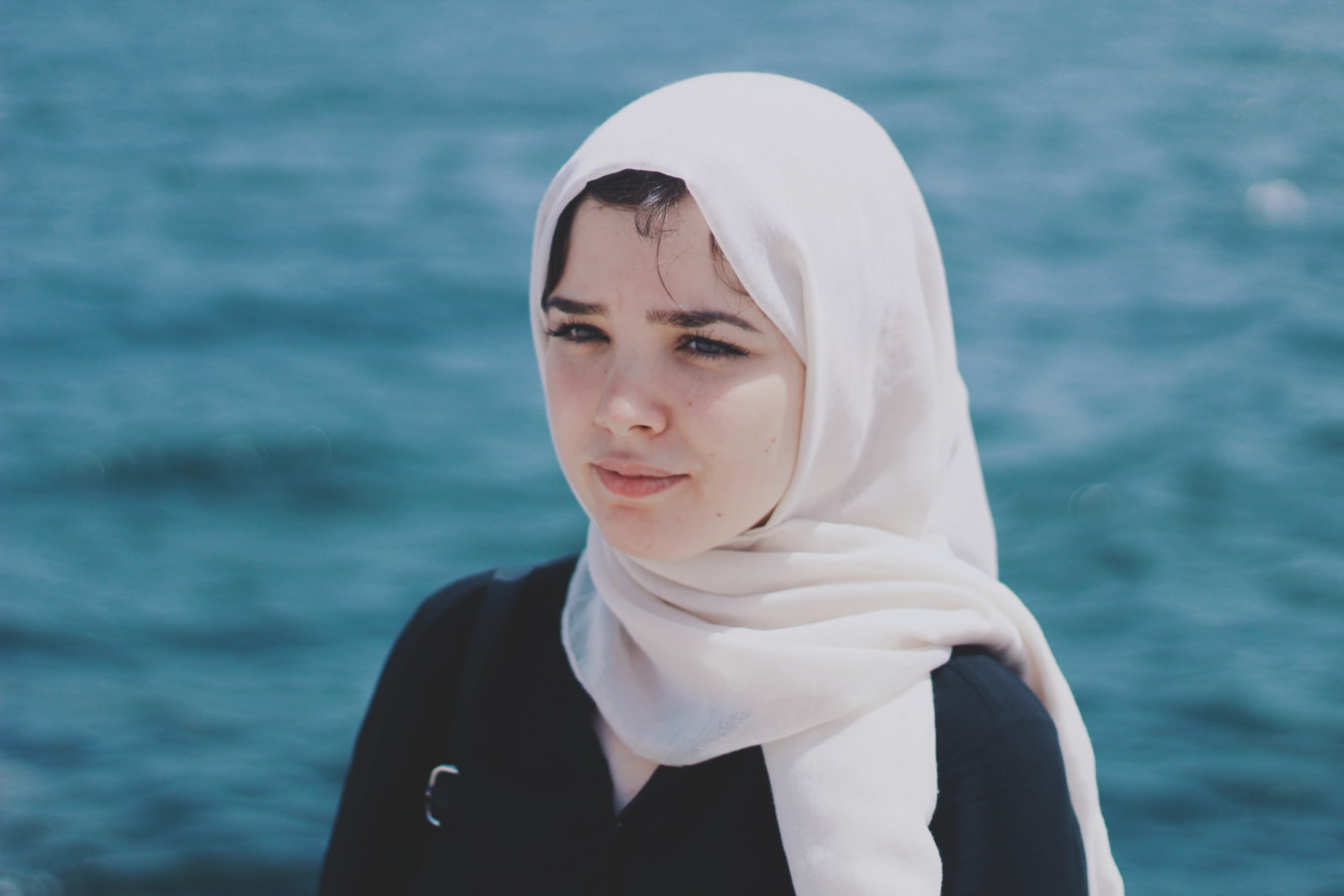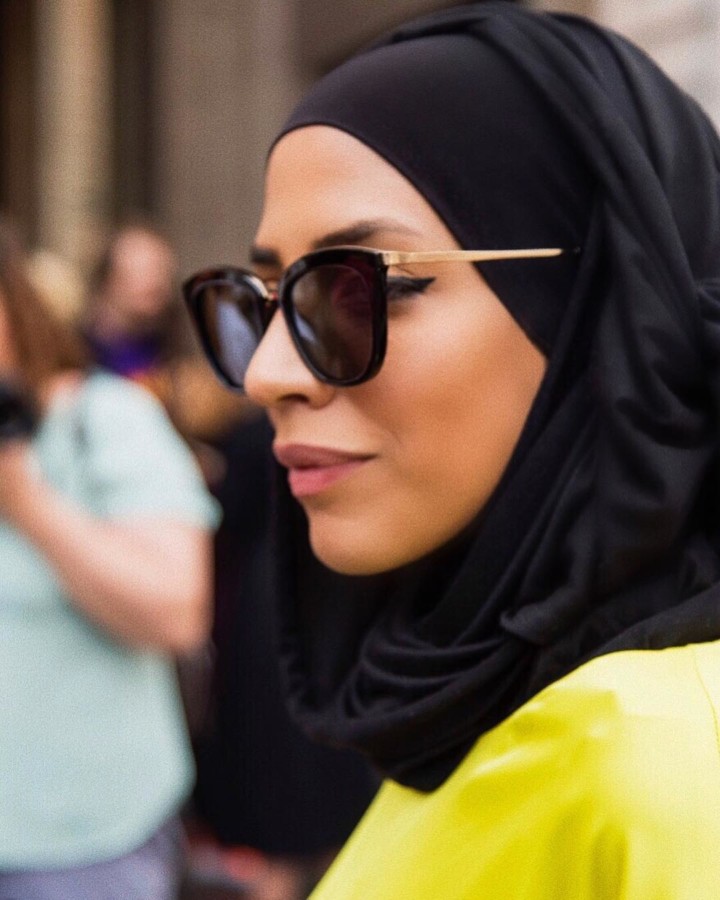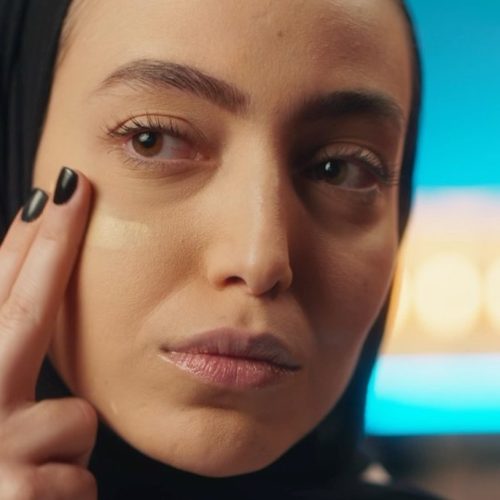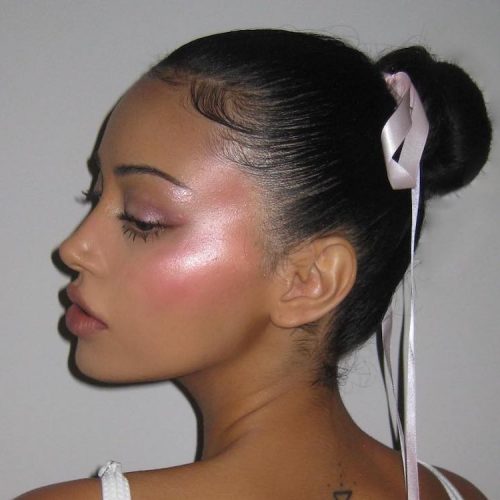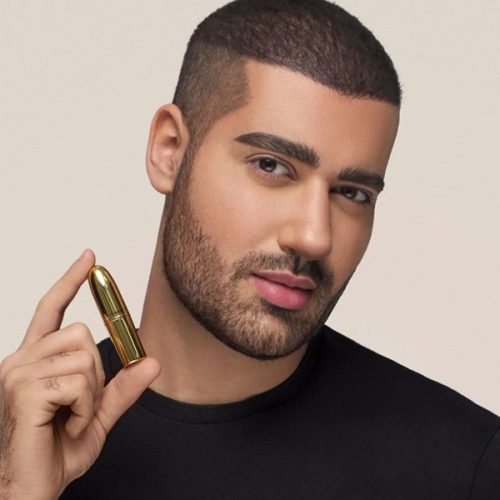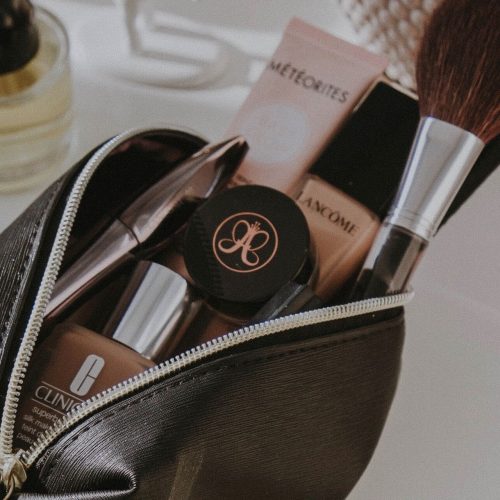It’s a widely held belief that Muslim women should adhere to a specific definition of modesty that disapproves of attention seeking behaviour, with makeup being considered just that. But despite this, Muslim women are some of the highest beauty spenders in the world– and that’s largely due to a recent movement that’s seeing women abide by their own definitions of hijab and modest dress.
And as the industry becomes more inclusive notably with a wider shade range availability, younger generations of hijabi’s are progressively creating their own beauty vocabulary. Whether it’s a practical choice, for fun, or to take ownership of their identity, they are setting their own definitions of beauty and creating new ways to represent themselves. MILLE caught up with six young hijabi’s to find out what makeup means to them and how modesty and beauty are compatible.
Suad, 22, Filipino-Sudanese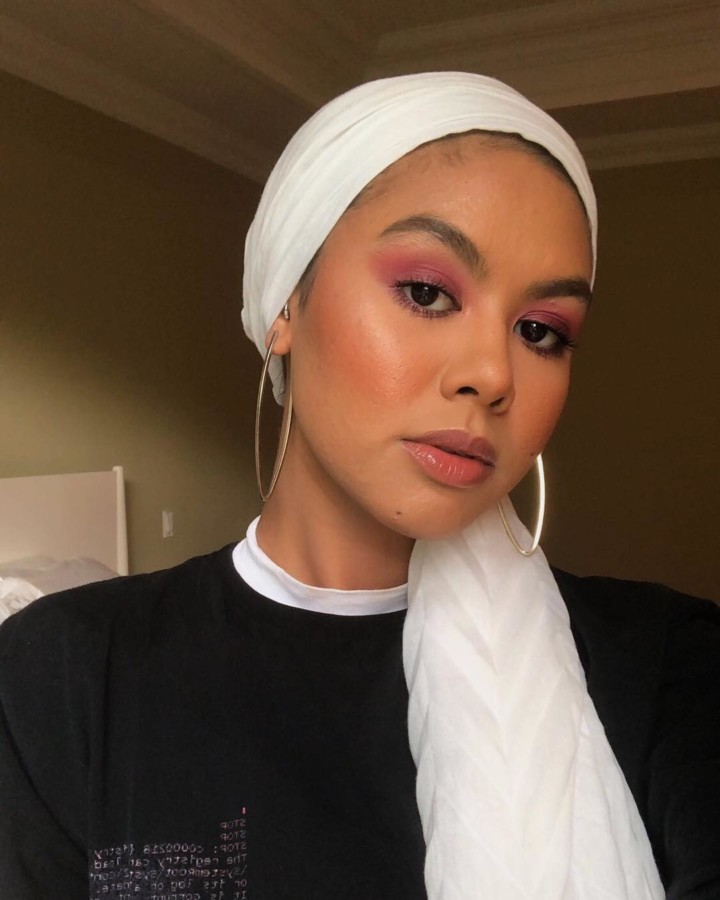
@modern.sudania
“As a hijabi, I think makeup and fashion are our strongest forms of self-expression. I started wearing makeup before I started wearing a hijab because of a lot of insecurities I had with my skin. I used it to conceal what I didn’t want to show. Throughout university, as I experimented with fashion and makeup I realized it was a way for me to control what I wanted to show and how I presented myself. When I started wearing the hijab the purpose behind it only became more apparent to me. I now use it to highlight features about myself that I like, much like my fashion. It’s some part of how I am perceived that I can influence.”
Helen Marie, 20, Sierra Leonean based in the US
@honeydon.t
“My initial journey into makeup actually started because I wore the hijab.
Hair is a huge part of self-expression in African American culture, so since I wore a hijab I felt like I couldn’t express myself nearly as much. So I broke into makeup.
Makeup to me isn’t about product placement or beautification; I truly enjoy the artistic side of makeup. I don’t like when makeup promotes European beauty standards nor when it encourages people to change their natural facial features to be pretty. I think to each his own, so everyone should do what works for them instead of trying to follow current standards. I prefer the way makeup was done in the 70s through 90s so I enjoy sparkles and glitter and glosses.
I hope to develop my art in a way that allows me to express myself and my culture, while also breaking stereotypes about Muslim women.”
Salwa, 22, British-Bengali

@urgalsal
“I suppose in the simplest form, makeup to me is a form of self-love, it’s a ritual that starts from basic skin care to more elaborated and experimental looks. I am looking at my reflection looking back at me, and every day I am assessing my growth. Makeup is a small part that has to play in that ritual. The art of makeup itself allows me to conceptualise a mood or build a character and that’s something that I just adore about it.”
Deema, 26, Syrian based in Saudi
“Even though I’m not a huge beauty expert, I think makeup is fun and I like to play around for specific events. I think that as for most women, it helps us represent ourselves in a confident way. And when you wear a hijab, your face is your only tool of expression. Even though makeup doesn’t hold an important place in my daily life, it’s always a good feeling to know you’re putting your best face forward, it can really be empowering. I’m into natural makeup to be honest, but maybe that unconsciously, that’s how I’m taking ownership of myself and challenge the beauty standards that I don’t agree with or fit in.”
Fatima Zohra Serri, 23, Moroccan
@fatimazohraserri
“To me makeup is something that we use to self-express femininity. I don’t use a lot of makeup, but when I do, I use it’s for self-care and self-love; to feel beautiful”.
Yousra, 28, Tunisian

@Hayekk_
“I like simple makeup, not necessarily because of modesty reasons, but because I’m into minimalism. Also, practically speaking, I don’t want to remove my makeup each time I need to do my prayers. Essentially, I use makeup to feel better, fresher and more powerful. It’s a way to celebrate beauty with myself.”





